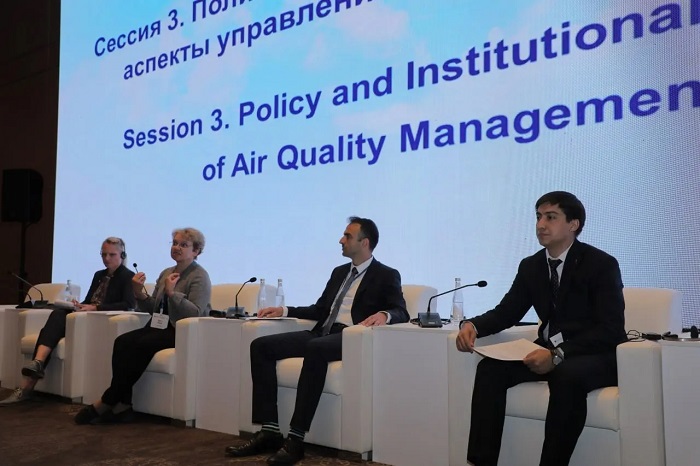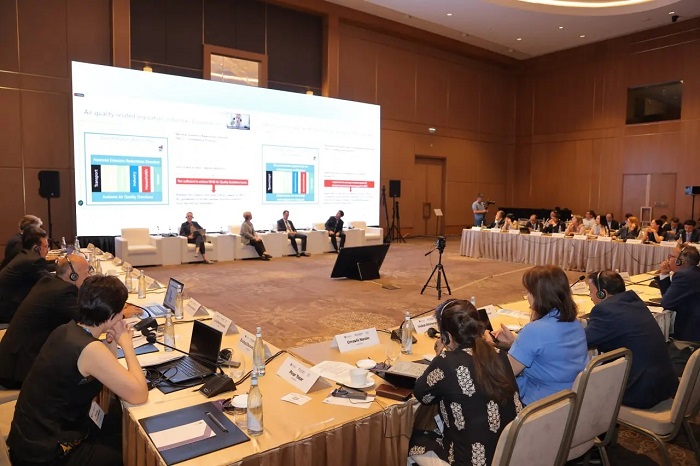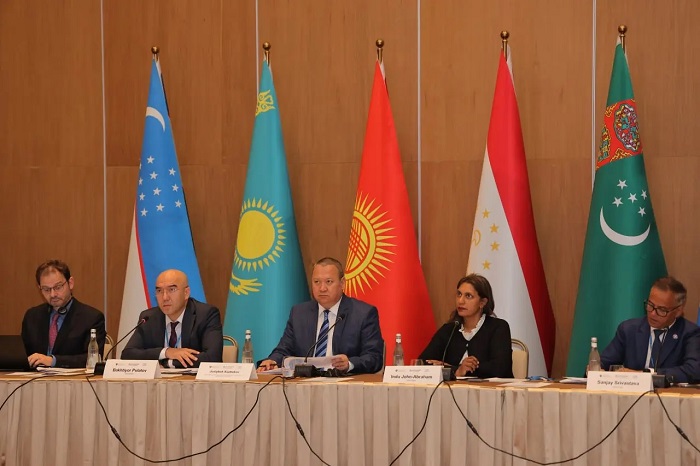On 19 June 2024, Tashkent hosted the first high-level political regional dialogue under the slogan “Building a clean air future in Central Asia”, organized by the Ministry of Ecology, Environmental Protection, and Climate Change of Uzbekistan jointly with the World Bank and the United Nations Environment Programme (UNEP).
The regional dialogue brought together representatives of various government agencies in Kazakhstan, the Kyrgyz Republic, Tajikistan, Turkmenistan, and Uzbekistan. The event was also attended by leading experts in the field of air quality management from Asia and Europe.
The purpose of the event is to promote coordinated actions by the countries of the region and the exchange of knowledge in the field of air pollution prevention.
“Uzbekistan, like other Central Asian countries, is facing challenges related to air pollution, and we understand that this problem requires urgent and effective measures. We recognize the importance of cooperation and the exchange of experience in this area, since environmental problems have no boundaries. I believe that this event will become a fruitful platform for sharing knowledge, discussing promising approaches, and developing specific measures aimed at improving the quality of atmospheric air in our countries”, said Deputy Minister of Ecology, Environmental Protection, and Climate Change of Uzbekistan, Jusipbek Kazbekov.
 During the event, participants studied government measures and practices in the field of air quality management in Central Asian countries. A methodology for the exchange of data on the effects of air pollution was presented, and priority areas were identified to accelerate regional cooperation in the field of air quality management. Representatives of the countries participating in the dialogue confirmed the determination of their governments to deepen cooperation and develop appropriate government measures to improve air quality.
During the event, participants studied government measures and practices in the field of air quality management in Central Asian countries. A methodology for the exchange of data on the effects of air pollution was presented, and priority areas were identified to accelerate regional cooperation in the field of air quality management. Representatives of the countries participating in the dialogue confirmed the determination of their governments to deepen cooperation and develop appropriate government measures to improve air quality.
“Air quality management is a complex process that requires understanding the sources of air pollution and identifying measures to improve the situation in the relevant sectors. These measures require more detailed data, effective legislation harmonized between neighbouring countries, reliable government institutions, and a developed eco-friendly infrastructure. By working together, the Central Asian countries will be able to make the air in the region cleaner!”, said Valerie Hickey, Global Director for Environment, Natural Resources and Blue Economy (ENB) at the World Bank.
It is worth noting that air pollution is a global problem. About 7 million people die every year from diseases caused by polluted air. In addition to the impact on human health, air pollution leads to huge economic losses, estimated at more than $8 trillion per year. It causes significant damage to the environment.
 In Central Asian countries, as in other parts of the world, air quality in urban and rural areas is affected by transboundary pollution caused by local pollution from the burning of fossil fuels in industry, the heating sector, and transport. In addition, one of the sources of pollution in cities is the increasing sand and dust storms. Most air quality-related diseases and premature deaths in Central Asia are associated with fine particulate matter with a diameter of 2.5 microns or less (PM2.5). Their concentration in large cities in the region is often several times higher than the permissible air quality indicators recommended by the World Health Organization (WHO). This is especially noticeable in the winter season during the intensive work of the heating sector. According to IQAir, a global air quality monitoring portal, Central Asian cities are often among the world’s cities with the most polluted air.
In Central Asian countries, as in other parts of the world, air quality in urban and rural areas is affected by transboundary pollution caused by local pollution from the burning of fossil fuels in industry, the heating sector, and transport. In addition, one of the sources of pollution in cities is the increasing sand and dust storms. Most air quality-related diseases and premature deaths in Central Asia are associated with fine particulate matter with a diameter of 2.5 microns or less (PM2.5). Their concentration in large cities in the region is often several times higher than the permissible air quality indicators recommended by the World Health Organization (WHO). This is especially noticeable in the winter season during the intensive work of the heating sector. According to IQAir, a global air quality monitoring portal, Central Asian cities are often among the world’s cities with the most polluted air.
According to the World Bank report “Assessment of Air Quality in Tashkent and the “Roadmap for Improving Air Quality Management in Uzbekistan”, health costs from air pollution with fine particulate matter PM2.5 vary from 5.1% to 7.3% of the gross domestic product (GDP) of Central Asian countries.
“Air pollution knows no borders, so cooperation between Central Asian countries in this area is extremely important. This dialogue will help increase investments in clean air to protect the health of Central Asians”, said Sylvie Motar, Deputy Director of the of the UN Environment Programme’s (UNEP) Europe Office.
It was noted at the event that efforts to improve air quality management have been stepped up to address air pollution problems as part of the regional governments’ plans to transition to green economies and decarbonize various sectors. The Central Asian countries recognize that air quality management is a serious challenge that requires joint, integrated, and intersectoral efforts at the local, national, and regional levels, involving various stakeholders and international partners. The authorities of the Central Asian countries can achieve their common goals in this area through the implementation of various measures. These include the adoption of health-sensitive air quality standards, the implementation of comprehensive government air quality management strategies and programs, the introduction of advanced air pollution forecasting tools, and the promotion of regional cooperation in combating local and transboundary pollution. Cross-border cooperation in the prevention of air pollution requires close cooperation between the authorities of the countries concerned in order to coordinate national policy priorities and share knowledge and international experience in this area.

